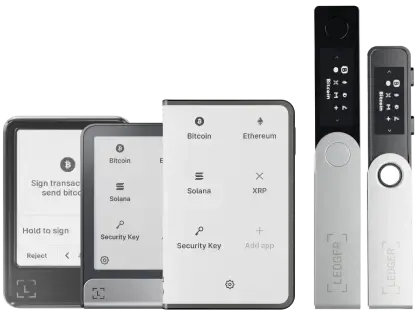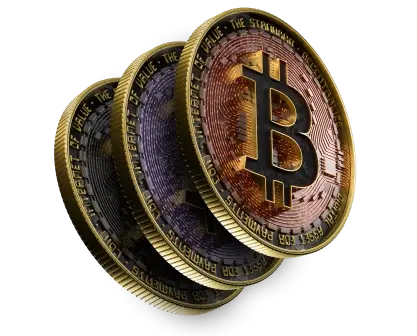Thought leadership | 10/06/2020
Blockchain in Sport: Air Ball or Slam Dunk ?

If you have followed the NFL recently, you might have heard about some players like the Bills’ Matt Barkley or the Panthers’ Russel Okung, who have requested to be paid in Bitcoin. Given the Dollar’s inflationary tendencies over the last decades compared with the decreasing inflation rate of Bitcoin, this is certainly a smart choice.
What you probably don’t know is that Bitcoin is only the tip of the iceberg. While Bitcoin and other crypto are powered by decentralized ledgers, also called blockchains, this emerging technology gives rise to many more use cases, of which some concern professional sports. This could lead to completely new ways for professional athletes to engage with fans and to obtain funding.
From the Fan’s Point of View
Recently, a new trend in professional football has emerged as some of the most popular teams have started to issue so-called fan tokens. Like cryptocurrencies, fan tokens are registered on a blockchain and can be traded, which gives them a real world value. Furthermore, it gives sports fans the opportunity to get involved in their favorite team’s life.
Fan tokens
By owning some of these fan tokens, you could participate in community votes and have a say in some aspects of team management. For the team, this can be a source of revenue but most importantly boost fan engagement.
For now, votes have been restricted to fan related questions. You can’t decide (yet?) whether to keep or fire your favorite team’s trainer. But have you ever dreamed of choosing the next design of your team’s jerseys? Questions like team branding or social media activities are typical decisions that teams would love to outsource to their fans. By owning fan tokens, you can be part of the decision!
With fan tokens, you may also qualify for exclusive offers, such as merchandise, fan events, discounts on stadium entry, or a meet and greet with your favorite player. Ever wanted to kick penalties with Lionel Messi? With Barça’s fan tokens, you might get your chance!
Today, the online platform socios.com assists teams in issuing fan tokens and already has struck partnerships with FC Barcelona, Juventus Turin, Paris Saint-Germain, Galatasaray Istanbul, AS Roma, and Atlético Madrid. Socios has also begun to target the e-sports sector as well, with OG and Team Heretics as their first partners. This is only the beginning.
Non-fungible Tokens
Besides fan tokens, non-fungible tokens (NFT) can be interesting for fans. They are digital collectibles with a limited supply. Both the MLB and NBA have issued such digital representatives of their players. Besides their value as collectibles, when you own these NFTs, you can compete with them against other NFTs in games similar to fantasy sports. The players’ performance on the field influences the in-game performance and the trading value of their digital NFT cousins.
Take Sorare as an example. You pick a team consisting of five NFT-players and enter a competition. All the player’s actions on the pitch are recorded and earn you points. If your team reaches one of the top spots in the competition, you can earn rewards consisting of more valuable cards. You could keep those to improve your team, or sell them on an NFT market.
Non-fungible tokens can also play a role in combating ticket fraud if every ticket was registered on the blockchain as an NFT. With blockchain-registered tickets, they are tied to their digital counterpart. This means that you can sell them through an online exchange by simply transferring the token. The exchange makes sure that you don’t charge extra, eliminating the risk of ticket scalping.
If you have bought tickets for the Euro 2020, you have already used this blockchain-based system, whether you know it or not. Since the tournament was delayed, the blockchain registry came in handy during the two refund periods UEFA offered and any needs to transfer non-refunded tickets for the upcoming 2021 tournament.
From the view of clubs and athletes
Over the last 20 years a good number of top football teams have managed to go public with an IPO. The performance of their shares was largely influenced by the team’s activities on the transfer market.
Any high-profile investment in a new player may quickly turn sour if the player does not show the potential initially thought he would. Likewise, a shooting star could be a real game changer for both the team’s athletic performance and financial wellbeing. When we think the idea of investing in football clubs one step further, why not invest in players directly?
One application of blockchain technology is the tokenization of assets. It is for example possible to split up the ownership rights for a real estate project into many small pieces that are represented as tokens on the blockchain. The same can be done for expensive artwork or exotic cars.
Applied to professional sports, teams could decide to tokenize one of their most valuable players and sell some or even all of the tokens to the public. The buyers would get a corresponding fraction of the transfer revenue if the team decides to sell their player.
An NBA player, Spencer Dinwiddie, recently set an example for this by tokenizing his own contract and selling 10% of the tokens to investors. In essence, he used his contract as collateral to get a loan and thus an upfront payment on his three-year tenure at the Brooklyn Nets.
This isn’t restricted to top players. As the first-ever talent management platform on the blockchain, TokenStars supports the careers of young and aspiring football and tennis players. For each applicant, holders of the TEAM token can vote if they will be offered a contract, or not. By voting for or against a rookie athlete, you can make or break the first steps in their career!
Crypto ventures also come into question as team sponsors. Arsenal London, the Wolverhampton Wanderers and the Miami Dolphins already have received sponsorship from blockchain and crypto ventures. Since the crypto economy is still a growing sector, you will likely see more teams being sponsored by related companies.
Sports Betting
When betting on a sporting event through an online bookmaker, there are several ongoing problems. The options for depositing money at the bookmaker are limited: some of the more convenient payments such as credit cards are not available. Ultimately it then usually comes down to e-wallets such as Neteller or Skrill to act as a middleman between your bank account and the bookie.
Not only does this require you to open an account at the payment processor and verify your identity. The payment processor may also charge fees on both deposits and cashouts. Aside from that, routing the payments through an e-wallet creates an unnecessary delay for cashouts. In a world where blockchain transactions take between a few seconds to a few minutes, you shouldn’t have to wait for up to a week until you can spend your winnings!
By using cryptocurrencies for deposits and withdrawals at sports books, you can achieve faster, safer, and cheaper transactions than with a centralized middelman.
If you like unconventional bets, you might want to check out prediction market platforms such as Augur. Thanks to these platforms, you can create a betting market on just about any topic you like. Want to bet on Neymar’s next haircut? No problem, just create a prediction market. The backend of the platform makes sure that the market resolves to the correct outcome.
What’s next?
Crypto is a rapidly changing and growing industry and nobody can tell which other innovations it will bring for professional sports in the future. Already, some players are requesting to be paid in Bitcoin. One of them has even tokenized his contract.
Clearly, blockchain in sports is here to stay and we will likely see the trend continue. Boosting fan engagement and finding new sources of revenue is too lucrative a deal to forego the issuance of fan tokens. Other blockchain use cases that arise in the future might include a drug test registry, or broadcasting sporting events over a decentralized streaming portal!
So what use cases will we see next? Well, who knows. All we can say is that there is a lot more to potentially come.
































